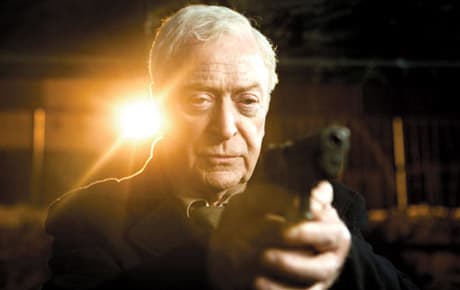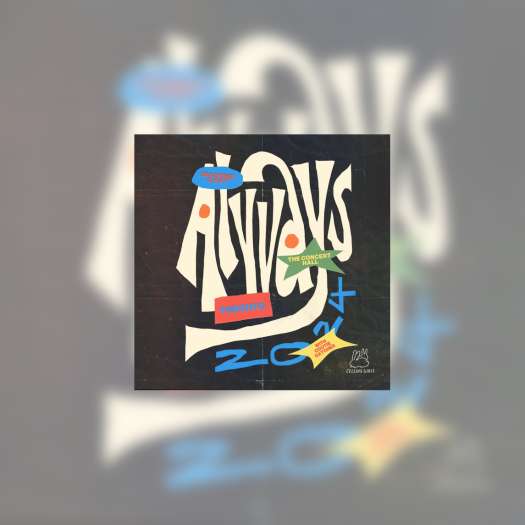Harry Brown opens in horror and despair as a young hooligan kills a random passer-by for no reason before being hit by a truck ― all shown from the point of view of his cellphone camera. This hideous moment sets the tone for the rest of the film, which is situated in a lower-class London apartment block where street gangs have made life intolerable for the seniors whose low pensions have forced them there. Harry Brown is being marketed as a Taken-style revenge thriller, but it's really a dark, sorrowful film about urban chaos.
One of the seniors is Harry Brown (Michael Caine), a widower who presides over a drab, empty little apartment and whose one friend is killed by a gang. Harry served in the Korean War, but he recoils from his violent past until his friend's murder pushes him tentatively into vigilante justice. His first on-screen killing is clumsy and impulsive, and he is similarly awkward in his subsequent showdowns. The film hinges on Michael Caine, who is convincing as a man who knows how to kill, but is rusty around the edges, gradually rediscovering the basic, primal satisfaction in violence that he's long suppressed.
Harry Brown has been compared to the Death Wish series, but apart from a monologue where Harry explains stomach wounds to a man he's shot, it lacks the cathartic glee those films evoked in their vigilante killings. Scenes like the one where Harry tortures a gang member or the violent climax, set amidst a gang riot, are shot with a muddy colour palette, dark lighting scheme and an emphasis on stark, brutal violence over thrills. If Harry Brown is a right wing fable, it's not a glamorous one; it posits that vigilantism is an ugly, unsavoury notion, but is a realistic response to pure, senseless evil.
No one would dispute that these gangs are senseless and evil, but director Daniel Barber and writer Gary Young overplay their hand. When Harry buys a gun from two gang members only to use it to kill them, it's not enough that their house is seamy drug den; Barber and Young also ensure that their TV is playing violent pornography, that they threaten Harry, that they use drugs in front of him and that they are indifferent to a girlfriend who has clearly overdosed.
Still, the film's apartment block has the pungent, squalid atmosphere of an area left behind, and Caine's grandfatherly screen persona makes for an intriguingly complex protagonist.
(E1)One of the seniors is Harry Brown (Michael Caine), a widower who presides over a drab, empty little apartment and whose one friend is killed by a gang. Harry served in the Korean War, but he recoils from his violent past until his friend's murder pushes him tentatively into vigilante justice. His first on-screen killing is clumsy and impulsive, and he is similarly awkward in his subsequent showdowns. The film hinges on Michael Caine, who is convincing as a man who knows how to kill, but is rusty around the edges, gradually rediscovering the basic, primal satisfaction in violence that he's long suppressed.
Harry Brown has been compared to the Death Wish series, but apart from a monologue where Harry explains stomach wounds to a man he's shot, it lacks the cathartic glee those films evoked in their vigilante killings. Scenes like the one where Harry tortures a gang member or the violent climax, set amidst a gang riot, are shot with a muddy colour palette, dark lighting scheme and an emphasis on stark, brutal violence over thrills. If Harry Brown is a right wing fable, it's not a glamorous one; it posits that vigilantism is an ugly, unsavoury notion, but is a realistic response to pure, senseless evil.
No one would dispute that these gangs are senseless and evil, but director Daniel Barber and writer Gary Young overplay their hand. When Harry buys a gun from two gang members only to use it to kill them, it's not enough that their house is seamy drug den; Barber and Young also ensure that their TV is playing violent pornography, that they threaten Harry, that they use drugs in front of him and that they are indifferent to a girlfriend who has clearly overdosed.
Still, the film's apartment block has the pungent, squalid atmosphere of an area left behind, and Caine's grandfatherly screen persona makes for an intriguingly complex protagonist.




